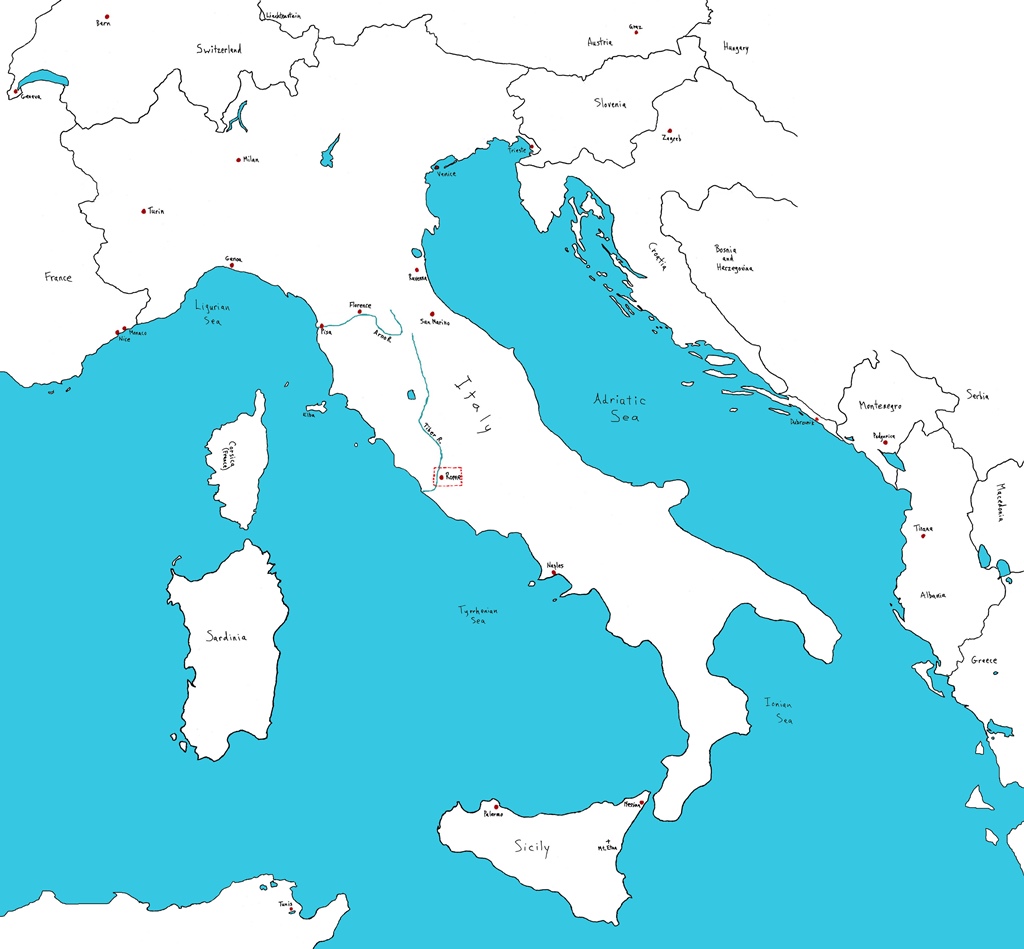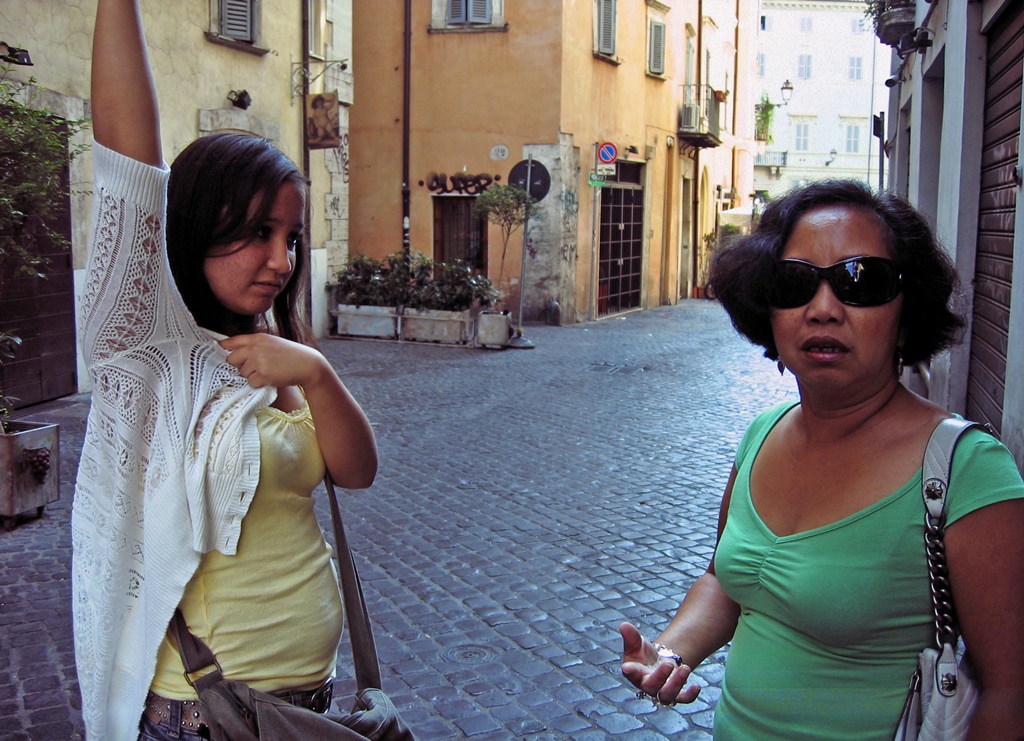Rome on the Map
Everyone knows something about Rome. All roads lead there. It wasn't built in a day
(from all appearances, they're still working on it). When you're there, you're supposed
to behave like the natives (though you should be selective – the wrong choice of role
model could make you an international incident). And it's known as the Eternal City,
though there are places (Egypt, China and Mesopotamia immediately come to mind) that
might legitimately consider themselves to be more eternal.
In the case of Rome, eternity seems to have begun sometime around 750 B.C., when a
settlement was founded in the area of seven defensible hills near the Tiber River.
According to legend, the city was founded by two brothers named Romulus and Remus.
There are several variations to the legend, but the general idea is that Romulus and
Remus were left as infants to die of exposure by their wicked granduncle, but were
rescued by a she-wolf, who decided to feed and protect them, rather than devour them.
A shepherd somehow ended up with them, and they grew up as shepherds. But they turned
out to be natural leaders and they accumulated followers, and after somehow finding
out what happened to them as infants, they killed their granduncle, and then resolved
to found a city. They picked the area near the Tiber, and after a disagreement over
which of the hills to start the city on, Remus ended up dead, and the new city found
itself named after Romulus. As it turns out, some of the details of this story (like
90% or so) have been judged unlikely, but the timing of the city's creation seems to
be approximately correct.
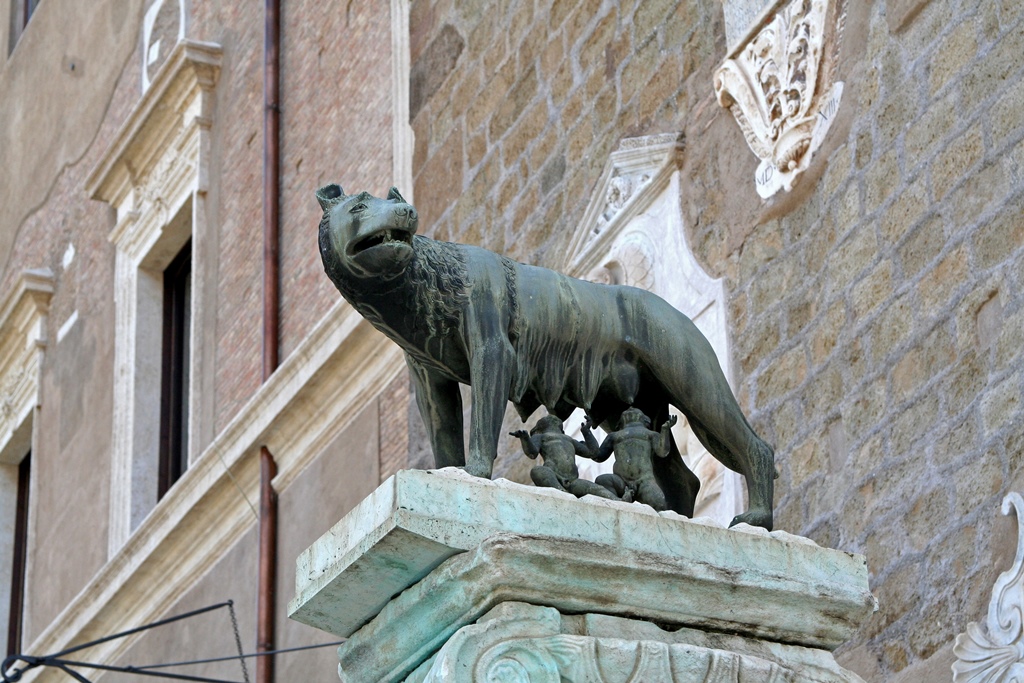
Romulus and Remus and She-Wolf
The rest, as they say, is history. Over the centuries the settlement combined (peacefully
or otherwise) with those surrounding it, and Rome became a republic, and eventually the
center of this empire thing. Most of the emperors got carried away with themselves and
misbehaved (at least by modern standards), some pretty badly, and the empire crumbled
from within and without, eventually collapsing in 476 A.D.
In the meantime, Christianity happened, and Rome became the center of the Catholic
Church. Like the Roman emperors before them, the Popes were officially recognized as
being infallible. The influence of Christianity spread, and with it came elements of
nepotism and self-enrichment by the upper-echelon Catholic establishment, and eventually
some practices resembling totalitarianism (believe X, Y and Z, or else). To be fair, it
was a nasty world, and this is how most of the governments of the time operated, but a
religion that began as a haven of tolerance and forgiveness had become anything but. But
with all that money, the Catholics built some really nice churches, many still standing.
The excesses of the church became a driving force behind the Protestant movements, and
despite a number of horrific bloodbaths, the political and spiritual influence of Rome
diminished. But the church survived and rededicated itself to its spiritual purpose, and
remains influential in this capacity up to the present day.
We arrived at Rome's Termini train station after a short trip from Florence. The station
was not unfamiliar to us, as we'd passed through it on our arrival in Italy two weeks
earlier, at which time we were transferring from the Leonardo Express from the airport
to a train bound for Naples. But this time we exited the station and boarded a taxi to
our accommodations.
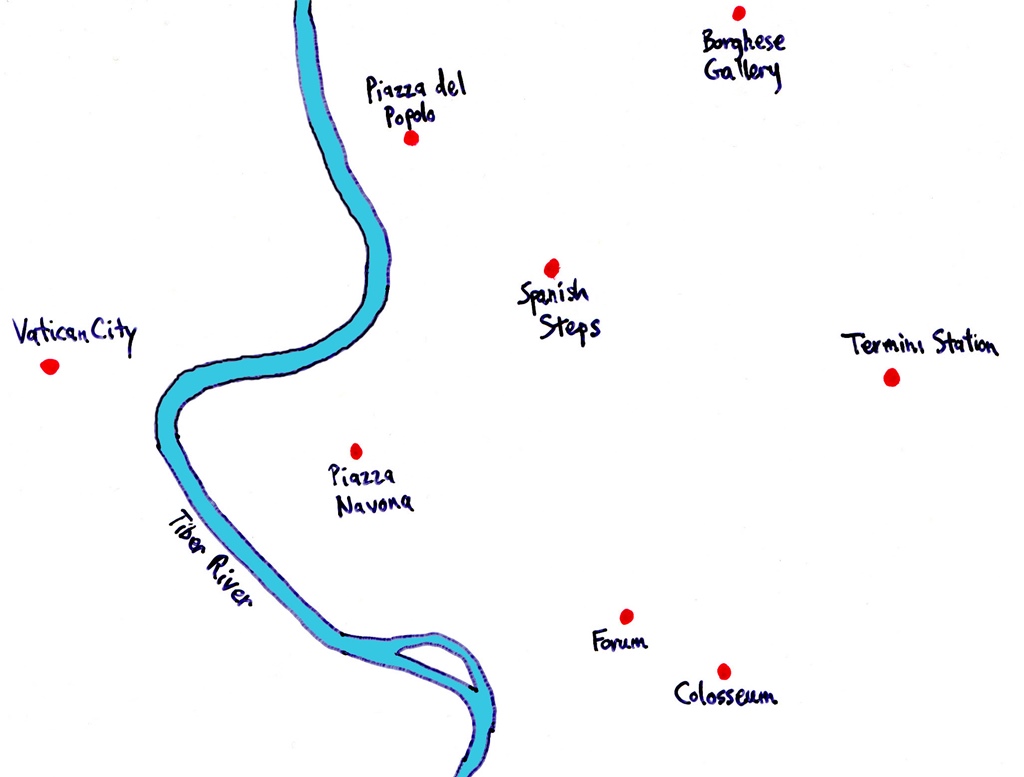
Central Rome
Before we embarked on our trip, we'd researched hotels in Rome, and had rapidly discovered
that anything in the area of the major tourist attractions was painfully expensive. We
looked around for alternatives, and stumbled across a website called
sleepinitaly.com, which lists apartments which
are rented out to tourists by their owners. The listed apartments come in a wide variety
of locations and rates, and though they can be expected to be at least somewhat quirky,
they generally come with kitchens of some description and laundry facilities. We selected
a likely-looking place near the Piazza Navona, at a much more reasonable cost than any
similarly-situated hotel. It came with two immediate quirks: first, we had to make an
appointment for a manager to meet us at the apartment with the keys; and second, on
meeting with the manager, we had to present him with the full payment for our stay, in
cash (Euros).
Both of these conditions were somewhat problematic. First, the cash involved was
substantial, and was not a sum we wished to be carrying around Italy for very long. It was
also enough to make the exchange rate of its acquisition an important consideration. Our
solution was to gradually accumulate the cash throughout our trip by withdrawing extra
money at each of our ATM visits and stashing it in a relatively safe location. Exchange
rates at ATMs are usually pretty good, depending on the fees your bank decides to add (you
should check this in advance to avoid surprises). The appointment condition required some
planning – we needed to know when our train was to arrive at the Termini station, and we
had to estimate how long it would take the taxi to get us to the apartment. We took our
best guess and made the appointment for 1 PM.
Our taxi reached the street listed as the location of the apartment (Via del Governo
Vecchio) and dropped us off, even though we didn't seem to be near the address of the
apartment. As it turned out, Via del Governo Vecchio is really just used by pedestrians,
so the taxi was not able to pull up to the apartment. The driver pointed vaguely to the
right before disappearing, however. We dragged our luggage down the cobblestoned street
in the indicated direction, and at the correct address found a large, wooden, locked
door. It was only 12:30, and we checked with some nearby storekeepers to see if they
knew the manager with whom we were supposed to meet. For answers, we got shrugs. We
noticed a café across from the apartment and sat down, surrounded by our luggage. We
ordered lunch, which arrived quickly, and kept an eye on the door across the way as we
were eating it. Around 1:10, a man came by the door, looked around briefly, and went
into one of the stores. The shopkeeper pointed to us, and the man came over to us and
introduced himself as the manager. Fortunately we'd finished lunch, so we paid and
followed the manager to the door, which he opened for us.
Inside the door was a dimly-lit hallway with an elderly marble floor, parts of which
were loose. At the end of the hallway we found a tiny elevator with wooden walls. We
went up in shifts, the manager leading the way. On the second floor (first floor if
you're European), he opened a large, primitive-looking door for us and admitted us into
the apartment, which turned out to be large and nicely decorated. He then explained
some of the oddities to us. Using too much electricity at once would trip circuit
breakers, and he showed us where they were, hidden behind a map hung on the wall in the
entry hallway. The apartment had very high ceilings, and someone had taken advantage of
this by adding lofts above the kitchen and the master bathroom. The loft above the
kitchen was the second bedroom, and had two beds, to be used by Philip and Connie, and
a low ceiling with a steel beam at forehead level. The loft above the master bathroom
was a "drying room", which was needed because there was no dryer to go with the washing
machine (concealed in a cabinet in the master bathroom). The drying room had a drying
rack, an ironing board and another low ceiling. The small kitchen had a number of
appliances, some straightforward, and some which we never figured out. And we were
informed of the existence of a grocery store up Via del Governo Vecchio. We handed the
manager a wad of cash, and he handed us the keys, telling us to leave them on the
kitchen table when we left a few days later.
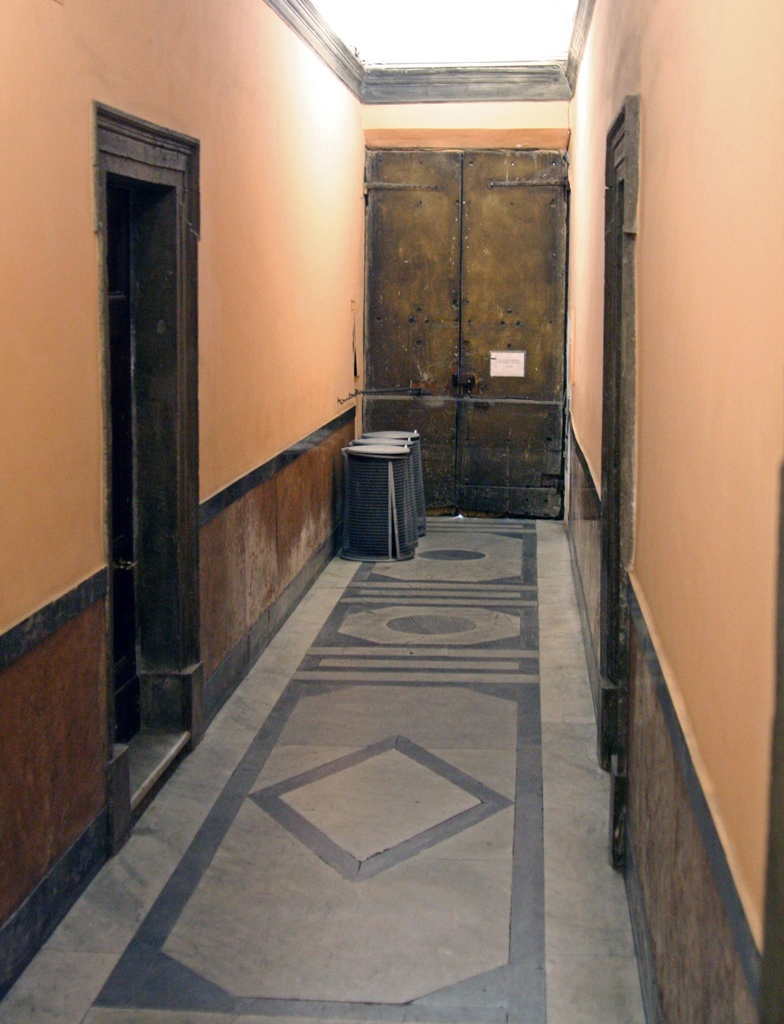
Entry Hallway

Entry Hallway

Tiny Elevator

Living Room
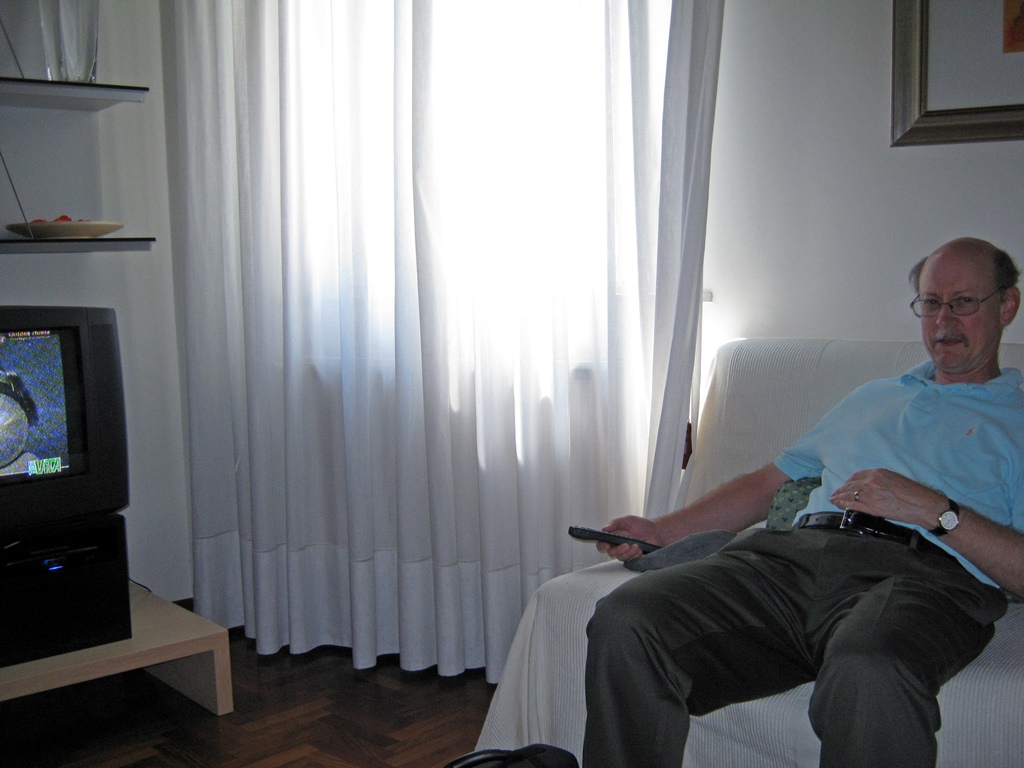
Bob in Living Room
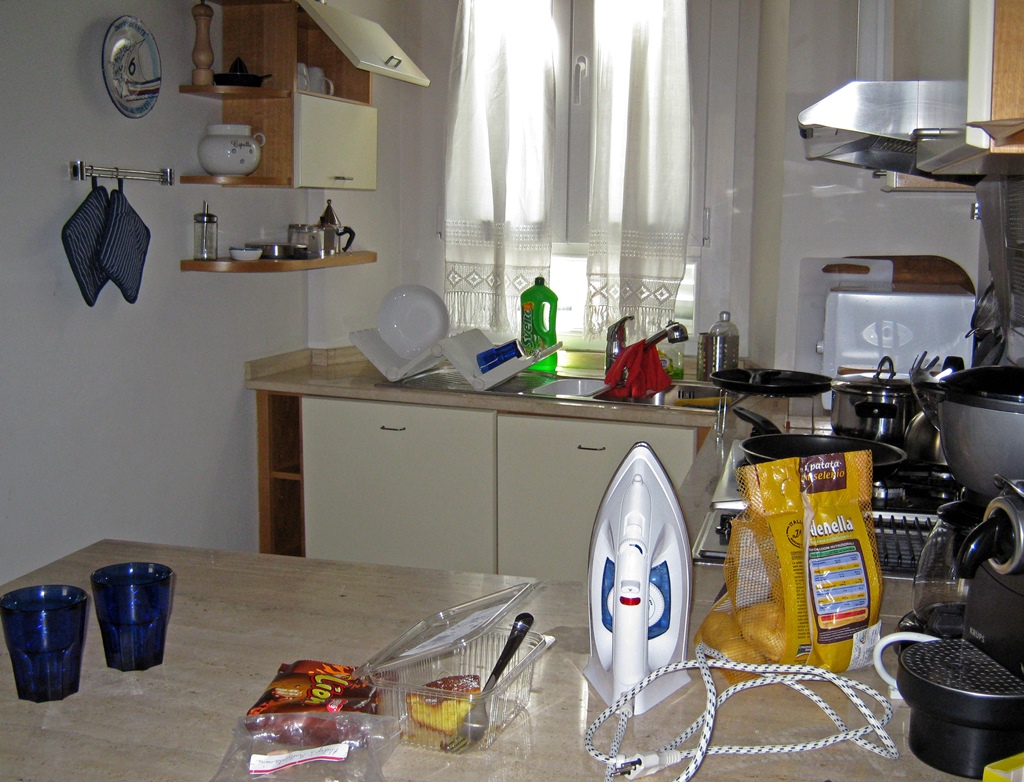
The Kitchen
The first item on the agenda after the manager left was to hit the grocery store for
food, beverages and laundry supplies. The store was small but had all the necessities.
We noticed unexpectedly large selections of wine and olive oil, but maybe this is
normal for Italy.
Heading for the Grocery Store
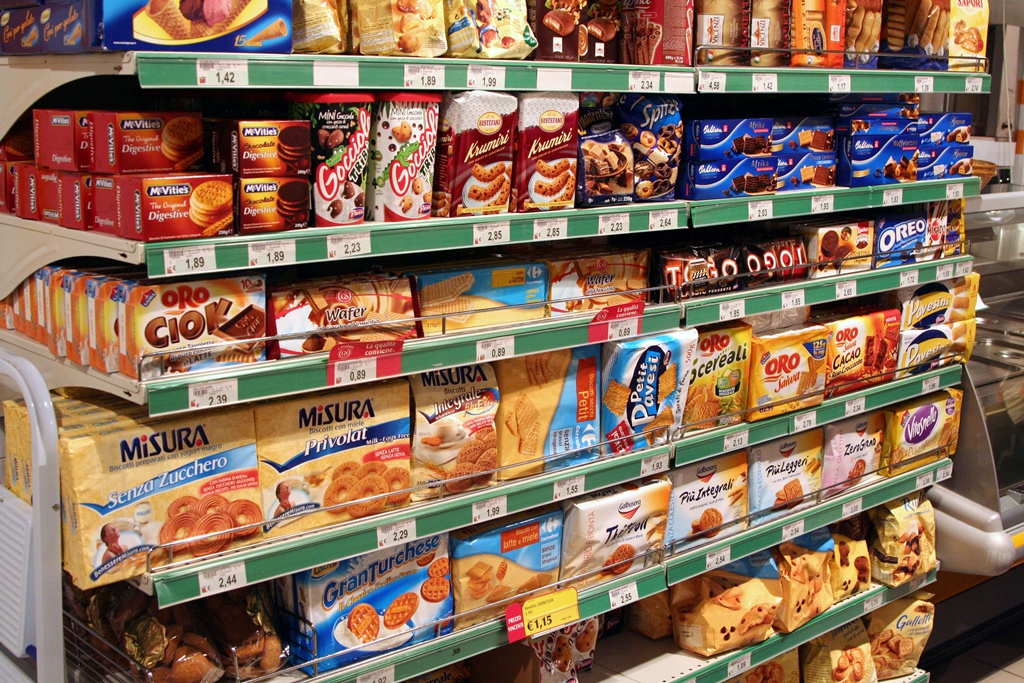
Italian Cookies
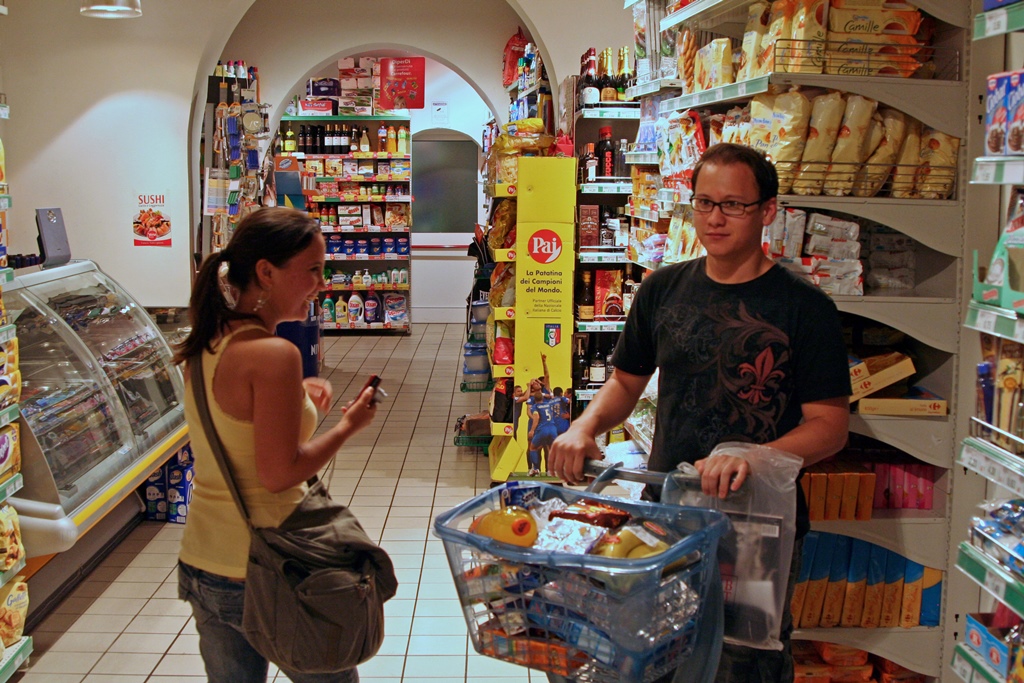
Overshopping for Food
We returned to the apartment and Nella began work on the laundry, washing enough clothing
to last us for the rest of our stay in Rome and for the trip home. Another apartment
quirk was discovered at this point: the washing machine was prodigiously slow. Nella
responded to this discovery by doing crossword puzzles. Philip responded by taking a nap.
Connie and I responded by going out to explore the nearby Piazza Navona.

